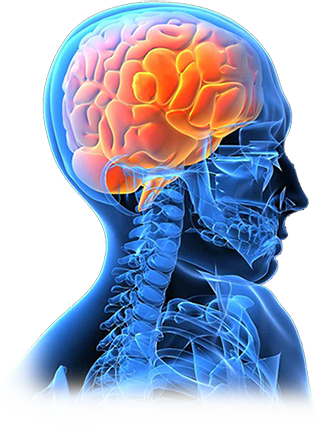 A neurosurgeon works on your brain, right? That’s true, but a neurosurgeon does a lot more than brain surgery. In fact, about 70 percent of a neurosurgeon’s time is devoted to your spine, treating back pain, neck pain, herniated discs, degenerative disc disease and even leg pain.
A neurosurgeon works on your brain, right? That’s true, but a neurosurgeon does a lot more than brain surgery. In fact, about 70 percent of a neurosurgeon’s time is devoted to your spine, treating back pain, neck pain, herniated discs, degenerative disc disease and even leg pain.
Neurosurgeons work with the entire nervous system that starts in your brain, runs through your spine, and branches out to all areas of your body. Often, pain that you feel is traveling through the nervous system. Neurosurgeons treat many painful conditions, such as low back pain, epilepsy, stroke, sciatica, pinched nerves and chronic pain. These conditions may manifest itself in one place but appear in another. For example, carpal tunnel symptoms may be related to spinal disc problems in the neck.
Most people think of neurosurgeons as doctors performing complex surgery. While it’s true that neurosurgeons can perform complicated surgical procedures in the spine and brain, its often non-surgical or conservative care that is prescribed. Diagnosing your condition and coming up with a treatment plan that is progressive in nature is typical with most neurosurgeons. For example, back pain may be treated medically with anti-inflammatory drugs, physical therapy and other non-surgical means. If your condition has progressed past these types of treatment, and if surgery is indicated, then the neurosurgeons can perform the needed surgery.
A neurosurgeon’s training is quite intense, and the longest training period of any medical specialty. In addition to four years of medical school, they intern for a year and are a resident for five to seven years. After that, many pursue a fellowship to specialize in areas such as spine. The complexity of the nervous system and its functions require this level of knowledge and mastery of techniques and technology.
Surgery performed by neurosurgeons today is far more precise than in the past. New technologies and techniques allow neurosurgeons to perform surgery with the least invasive procedures called Minimally Invasive Surgery. These techniques use special instruments to create the tiniest incisions needed to access your problem area. Many neurosurgeons also use sophisticated 3d imaging technology to visualize inside your spine or brain. This adds an extra layer of safety and accuracy.
A neurosurgeon gives you an overall focus on your body’s nervous system and the conditions – whether trauma, degenerative or chronic pain – that affect you. Your neurosurgeon will work with you to determine the best treatment plans for your condition to achieve the best outcomes possible for you.
